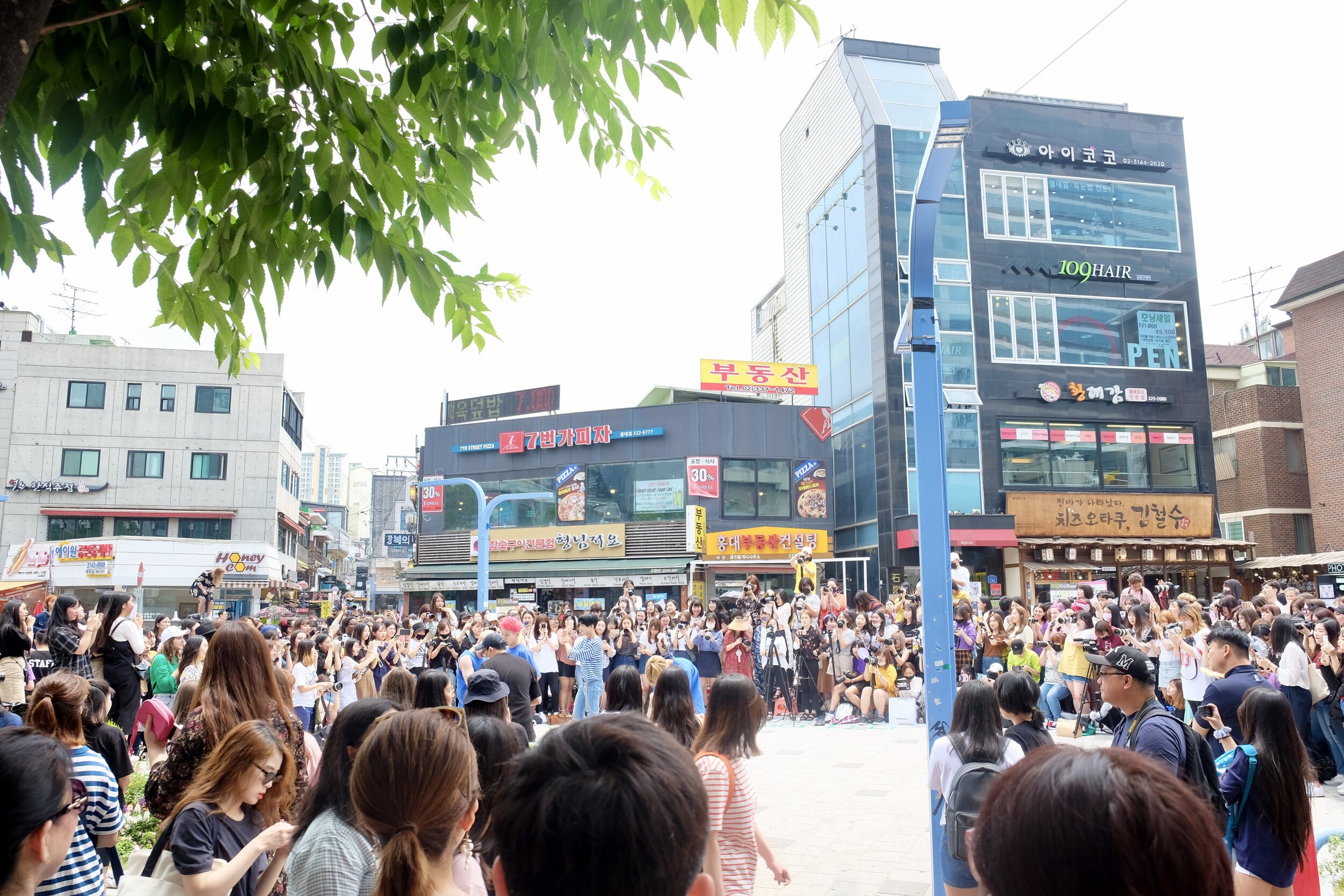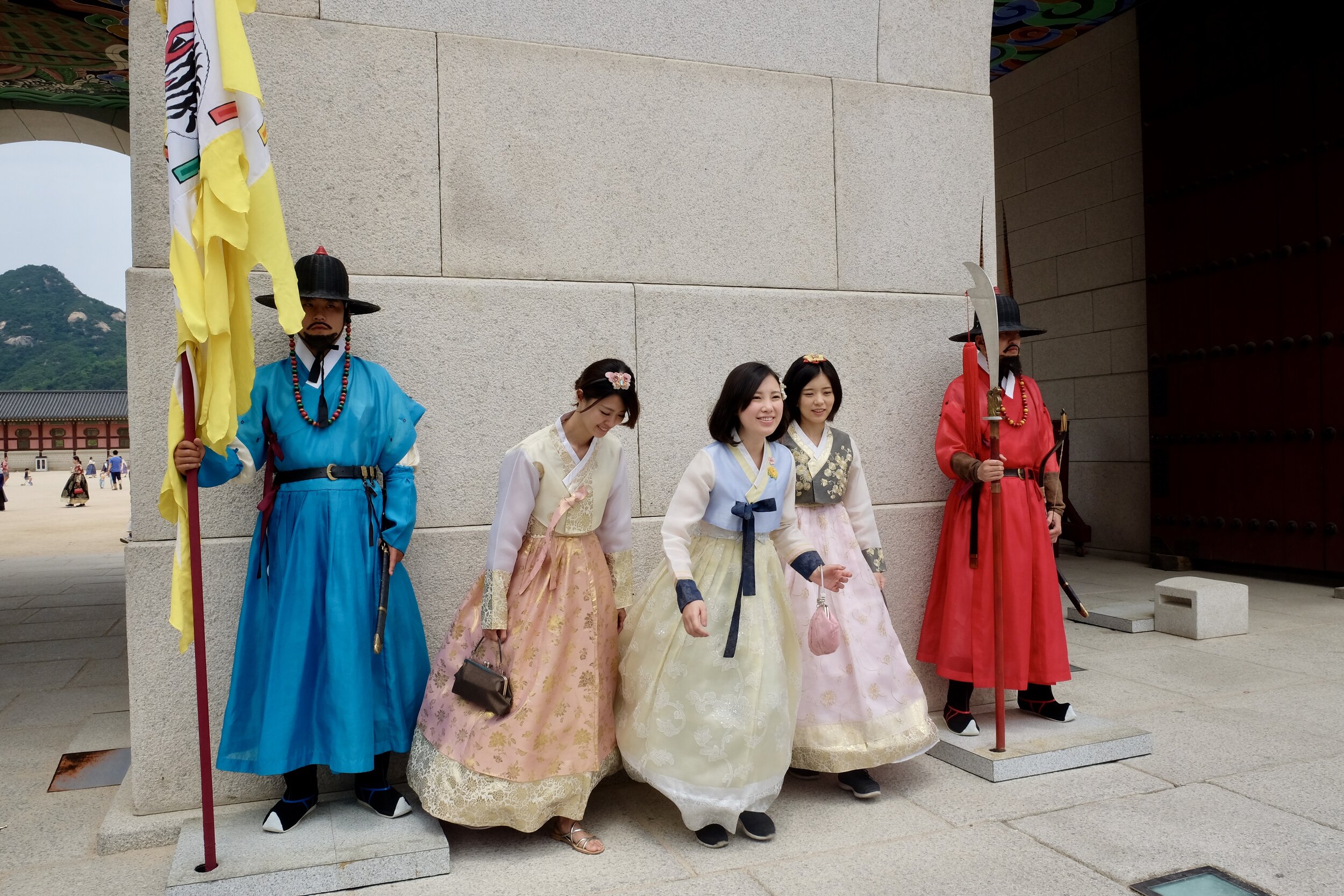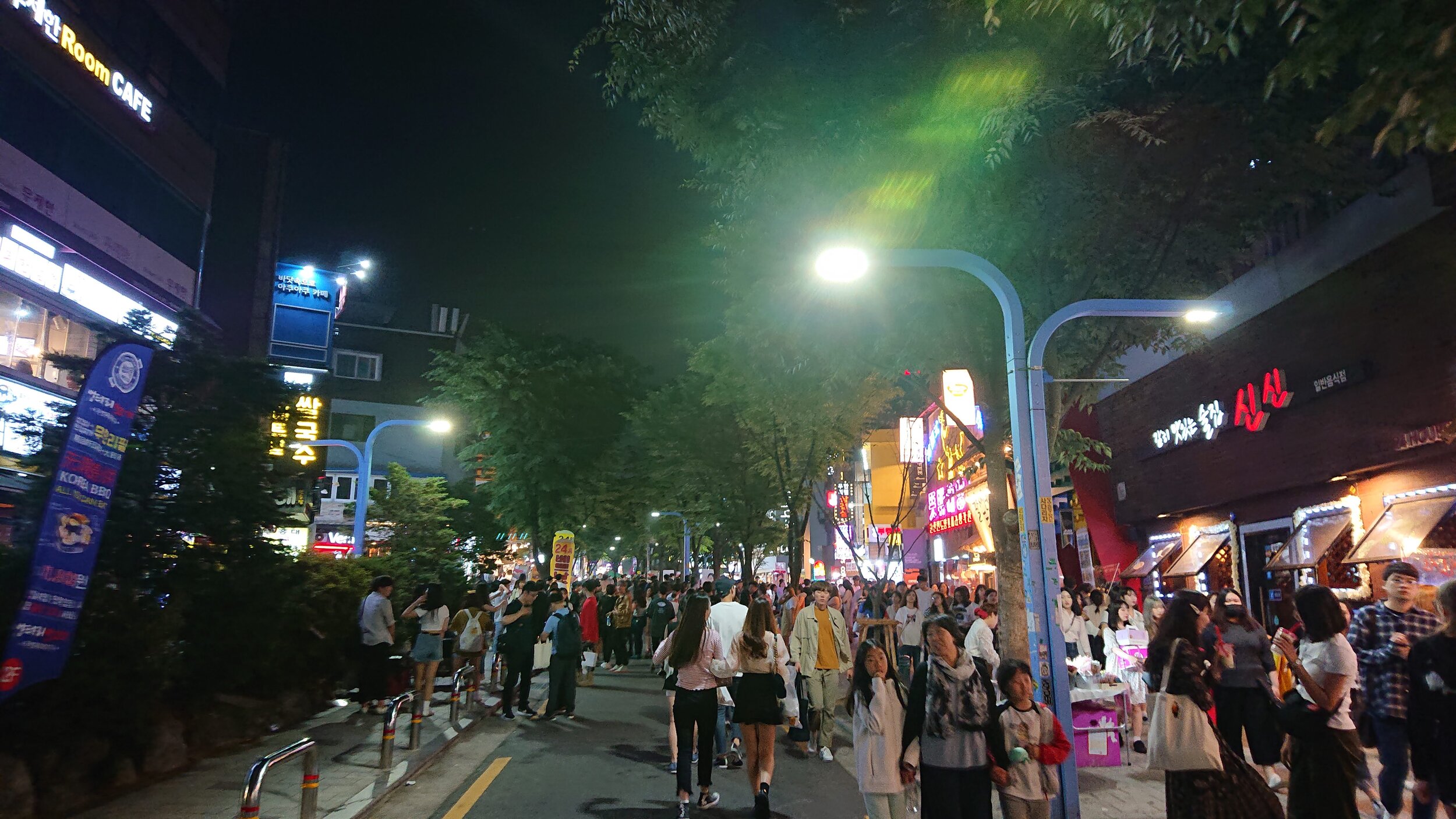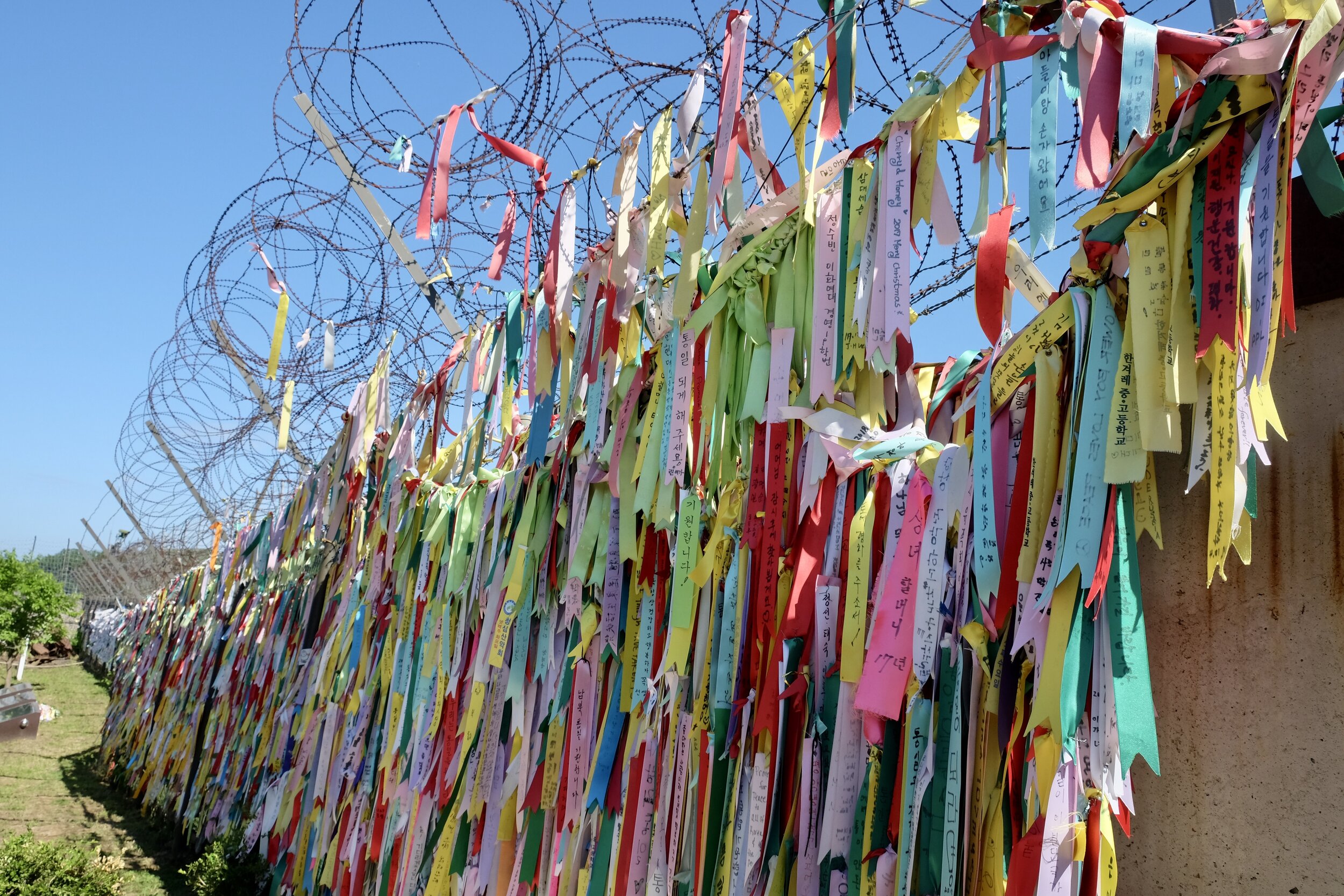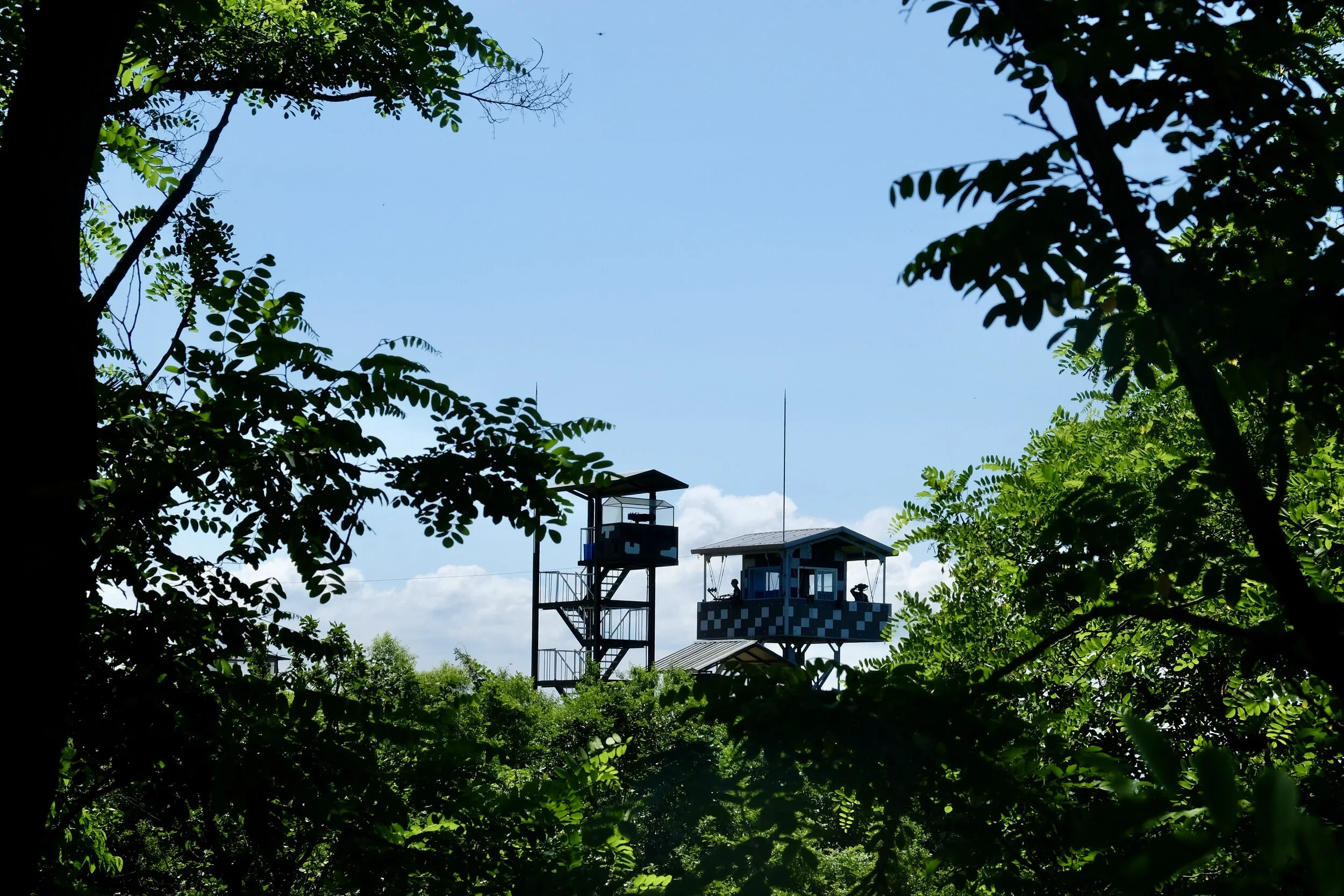Ride: Seoul Express Bus Terminal to Seoul City Center, South Korea
Distance: 13.4km
Terrain: We really just did this for fun, as we rode the bus in from Cheonan. For an in-depth review of the Four Rivers Bike Trail in Seoul, read our post here when we started off almost a month ago.
To interact with this map, visit Jess’s Strava account here.
On our final official day in the saddle, we woke up when we felt like it and wandered over to the bus station for the trip back up to Seoul. Since riding to Busan and achieving what we came here to do, we’ve prioritised enjoying ourselves over slogging away on the bike, and today we were going to take it nice and easy. When it doesn’t make sense to ride, we take the bus and don’t beat ourselves up about it. “Not today”, in the words of Arya Stark.
After just an hour on the bus, we were at the Seoul Express Bus Terminal in the southeast part of the city, changing into cycling kit for a short but probably sweaty ride across town back to Hongdae, where we stayed at the beginning of the trip. That area really captured our hearts the first time around, and with its bars, restaurants, and friendly vibes, it was a no-brainer to stay there again. Our berth this time was the L7 Hotel, a new and trendy property belonging to the Lotte mega-conglomerate that promised luxury at affordable prices right in the heart of town. Much fancier than we’d normally allow ourselves, but we’d done well with our budgeting and decided to treat ourselves for once.
We had been dreading getting across Seoul at this time of day, but as it turned out it was pretty easy going. We spent the 13 kilometres chatting away and enjoying the relative calm and ease compared to some of our earlier rides. Much of that distance was along the usual high-quality riverside bike path, with a little bit of urban action at either end, which, after a month in the saddle, Neil was able to dispatch with aplomb, weaving our monster bike through traffic like a courier on a deadline.
In every sense, we’d come a long way since our first day when we didn’t know what to expect, and felt like seasoned pros at this point. It’s always weird when you’re on your last ride of a journey, and particularly so when you’ve been on the road for this long. One month might not be much for a hardcore cycle tourist, but for us, it was such a gift, and we were both ready and sad to see the end of it.
The Han River has dozens of bridges, most none too bike-friendly, but this one also has a causeway underneath with a fantastic bike lane.
Stand still long enough in Hongdae and eventually an up-and-coming K-Pop artist will appear and perform.
Lovely area for a stroll and a browse.
The “Secret Garden” at Changdeokgung Palace isn’t much of a secret, but it’s a heck of a garden.
Zaha Hadid’s bonkers Dongdaemun Design Plaza really gives the feeling that Korea is just a little bit in the future.
Lotte World is Seoul’s own Disney knock-off. Jess does not like rollercoasters at all.
From the moment we arrived here, it’s been a running gag between us that with their superfast data connections and techno toilets, Koreans are living in the future, but only a little - they haven’t gone full Blade Runner dystopia yet, but we always felt a step or two behind. This is an incredible shift from 50 years ago, when Korea’s impoverished economy was almost completely based on farming. In just a single generation it rose from the ashes of the Korean War to become one of the highest-performing, most developed nations on earth.
All of a sudden, Koreans had money and power, and the opportunities that come with that. In this brave new world, you could get so caught up in the pace of change that you end up a long way from whence you came before you even notice. Maybe this is why so many people seemed to yearn for a time long gone. Teenagers go around dressed in hanboks for fun, and historic sites such as old palaces and traditional villages are visited by Koreans more than anyone else. Perhaps it’s an attempt, like Jess, to understand who they really are. Maybe, ironically, the hyperconnected world they inhabit makes them feel cut off from their roots.
We embarked on this trip for multiple reasons - to have one hell of a honeymoon, sure, but also to give Jess a chance to reconnect with her heritage. She has always felt caught between two completely different worlds, and feeling completely at home in neither - viewed by society as “too Korean to be American” and “too American to be Korean”. Feeling forced to pick one over the other in order to forge a tangible identity, Jess rejected her Korean roots for many years. It’s always been something to watch from afar with varying degrees of interest, but never anything she allowed to hit close to her heart.
On our last day in Korea, we did something very unusual for us and went on an organised tour. Reluctant as we were, unfortunately it’s the only way to visit an essential part of any holiday here: the DMZ.
The DeMilitarised Zone is a 4km-wide no-man’s land that came into being at the end of the Korean War in 1953. It traces an unbroken spiky line across the peninsula from coast to coast, separating the two Koreas and their diametrically opposed ideologies. It’s a forbidding place full of tension, and that’s why you can only visit as part of a tightly controlled tour for your own protection. You can find a number of operators who offer such facilitation - we went with Get Your Guide.
Inevitably, it’s a very touristy and heavily propagandised experience, and we felt herded and hurried from one sight to the next. We really wished we could have had more time to sit and think about what we were looking at and what it all meant, but unfortunately that’s not on the agenda as they usher you around. Don’t get us wrong, there is plenty of interest to see here. The immaculate modern railway station waiting patiently and poignantly for a train to pass through. The Third Tunnel of Aggression, one of four known attempts by the North to breach the border from underneath, and not recommended for the claustrophobic. The inevitable cheesy souvenirs in the form of a pretty distasteful array of Northern Korean food and wares at a gift shop next to Dorasan Observatory.
it was the closest we would probably ever get to the Hermit Kingdom, and for Jess, the thought of that was incredibly meaningful. For when Korea was still whole, her father’s family was the second largest landowner in the entire peninsula. His parents, her grandparents, grew up under Japanese occupation and when the Korean War was happening, they fled to the South, leaving everything behind.
Their land was located right underneath the 38th parallel, and had the border strictly followed that line, it would still be theirs today. But here at its western end, the DMZ sits a little to the south. As such, that family land is part of North Korea now, and they won’t be getting it back.
So after all this effort to try to figure out where she belongs, it turns out that Jess can never really go “home” ever again.
Somewhere over there is Jess’s father’s ancestral home.
If you think your commute to work is unreliable, waiting for a train here will put things into perspective.
One day. One day.
“The young couple would walk through the night, scattering ginkgo leaves in their wake. What did they talk about? Their families, their classmates, books they had read - whatever the topic, it was endlessly fascinating. Years later, when I asked the girl about the happiest memories of her life, she told me of those nights.
This is not the sort of thing that shows up in satellite photographs. Whether in CIA headquarters in Langley, Virginia, or in the East Asian studies department of a university, people usually analyze North Korea from afar. They don't stop to think that in the middle of this black hole, in this bleak, dark country where millions have died of starvation, there is also love.” - excerpt from Nothing to Envy, by Barbara Demick.
Half a century ago, South Korea was at the start of a major transformation, both industrially and culturally, and it is by no means the same country now as it was then. As we head into 2020, it’s an interesting thought exercise to think just how much further it can go. On the one hand, the government continues to invest heavily in technological advancement, and with its R&D in augmented/virtual reality, 5G, cyber security, and mobile applications going head to head with the rest of the world’s players, it’s not impossible to imagine that one day, every household around the globe will be using, sleeping on, and eating with Korean products.
But progress always seems to come at a price, and in this case, it’s the Korean people who are paying it. Birth rates are declining at a steady rate, dropping to a record low of 0.98 in 2018. The population is decreasing, causing many to panic about the economy and productivity indexes. South Korea also has the highest gender pay gap in the OECD, which forces some women to quit working altogether to take care of their children. And suicide is the 10th highest in the world, according to the World Health Organisation. Because mental illness is a social taboo, many suffering from it do not get the treatment they need. It is the number one cause of death among South Koreans aged 10 to 39.
When you visit a country like this, it’s easy to get swept away by the flashing lights and everything the country has to offer. After all, you’re only there for a limited amount of time, and you’re leaving anyway so why should you care? But one thing cycle touring has taught us is that even though you may not realise it at the time, your presence causes a ripple effect that then has an impact on the next tourist, and the one thereafter, and so on. The locals living there, especially in small towns where not much happens, will remember you.
Who knows what the future will hold. But for now, we’re signing off. It was such a privilege and honour to experience South Korea the way that we did. A journey that won’t be forgotten anytime soon.




